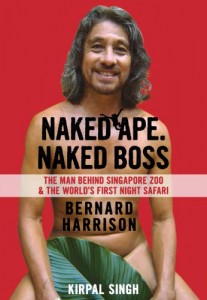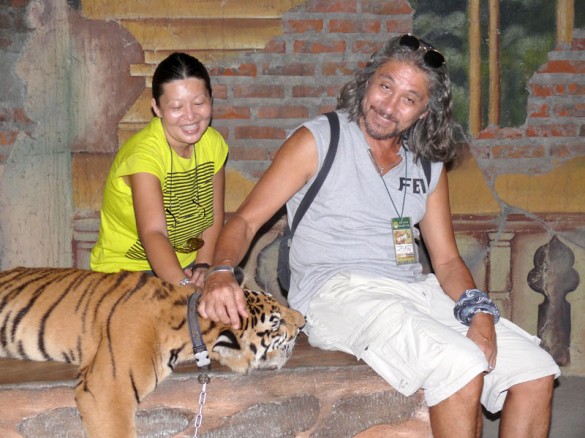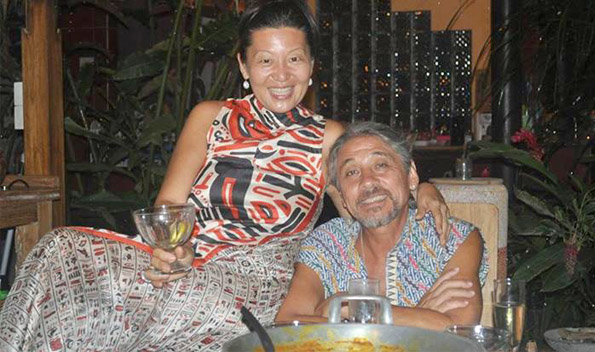Bernard is the zoologist who ran the Singapore Zoological Gardens and Jurong Bird Park, also starting the world’s first Night Safari. His biography Naked Ape. Naked Boss [by Kirpal Singh] is due to be launched this April.
Where were you born and raised?
I was born in Kuala Lumpur, Malaysia and lived there until I was five when my family moved to Queensland, Australia. At nine, I lived in Singapore and at eleven I attended boarding school in England. I spent ten years there. I studied zoology, psychology and animal behaviour at the University of Manchester. My father was a professor of zoology and my brother became a botanist, so these interests seem to run in the family. I then returned to Singapore where I started working for the Singapore Zoological Gardens in 1973.
You were there 30 years and became the CEO of Wildlife Preserves Singapore which is SZG, Jurong Bird Park and Night Safari. What are the main changes you made there?
It was a great zoo, to begin with. We just made it better, very free and open and put on great exhibits. I was Director for many years and, along with an in-house design team, I was able to continuously upgrade the design and management of the facilities. I created one of the greatest teams in the world. We worked so well together because there was no politics involved. Everyone is a specialist and they are all there because they love what they are doing. A big accomplishment was the creation of the first Night Safari in the world. It’s unique and the first of its kind in the world. It may have been thought of at zoos in the West but was never executed; most likely because it has to be in a warm-weather climate.
I see you have a book coming out about you, ‘Naked Ape. Naked Boss’. Are you the Naked Boss?
Yes, I am. The book is a biography of me by Kirpal Singh and is due to be launched on April 11th. The title is because I don’t like to wear clothes very much. I wear as little as possible and when possible, I wear nothing! Like when I sleep outdoors. Our bed is in the garden. It is lovely when it rains!
Tell me a funny animal or zoo story.
We had a hippopotamus escape from the Singapore Zoo. The zoo is surrounded by a reservoir and that’s where he went and stayed for forty-eight days! Because the thing is, how do you catch a hippo in the water? He would come up at night to feed on grass and food we would leave out for him. The only time we could possibly get him was on land. The hippo’s skin is so thick the tranquillizing dart doesn’t penetrate. It just bounces off of him. We had tried everything. Then a guy who personally knew the hippo came back from leave. He said, “Let me try and get this guy!” He went to an animal den near the reservoir and put food in it then tied a string to the door. That same night the hippo went in and the guy closed the door. No problem.
What is the downside of creating a zoo? What are the most prevalent problems you encounter?
The downside is you pitch ten jobs and you get one. The likelihood of getting that job accomplished is one in ten. A lot of people want to do projects, but when they realize the costs and what it entails, they withdraw. You spend a lot of time pitching for a job and when you do finally get the job, it rarely gets built. It is hard to get a client that shares your vision. They may love your design but they have their own agenda. When you finally get one that goes to fruition it is truly a time for celebration. Our main concern in a zoo is animal welfare. We want to make sure the client is aware of the importance of proper maintenance and upkeep of the animals. We must convince the client animal welfare is the first priority and if not, they should not build a zoo.
Where is your next project?
We are currently doing a project in Xiamen, China. We have also designed and developed projects in India, Cambodia, Seychelles and the U.A.E.
Have zoos been successful in reintroducing species in danger of extinction into their original habitats?
We do try to introduce species back into the wild but many times to no avail. One such species is the Bali Myna. They are bred and put back only to be trapped. Ironically, the Hong Kong Zoo breeds a lot of the Bali Myna which are reintroduced back to Bali and end up back in Hong Kong in the bird market!
What happened to our relationship to animals and nature?
We lost it. I recently gave a talk at the National University of Singapore, one of my alma maters. It was titled, ’Why do we do what we do?’ and questioned why we are so barbaric and cruel as a species. The problem is we have not learned to be compassionate. We do not even treat each other properly. We treat animals almost with contempt. Why is that? Because we are hunters? Look at chimpanzees which we are 98.6 percent genetically like us. Chimpanzees, like man, are aggressive, assertive, prone to violence, and hold the female as subordinate, and lower in status. Humans have evolved similar to chimps. The Bonobos share the same genetic structure with us but are a matriarch society where the males are subordinate. There is no aggression and when there is conflict, they have sex! Also, look at gorillas who are pure vegetarian. Their attitude is much gentler.
If you could play a part in developing Bali, what would you do?
I would ban plastic bags in Bali and all of Indonesia. Bangladesh banned plastic bags about twelve years ago for practical reasons. They were clogging all the drains and sewers. Heavily congested tourist areas such as Kuta to Seminyak should be closed to traffic, with lots of car parks. People could walk and cycle. Trees should be planted everywhere to create cool shade and keep it beautiful and green.
Why did you choose Bali as one of your bases?
Because it is the nicest place in the world. I love Sanur; the village mentality and no traffic jams. Bali is beautiful.
Thank you, Bernard! To find out more, visit www.bernardharrisonandfriends.com




